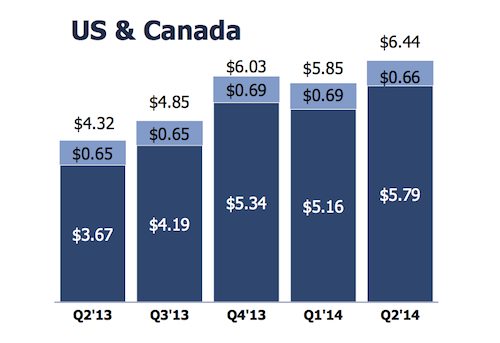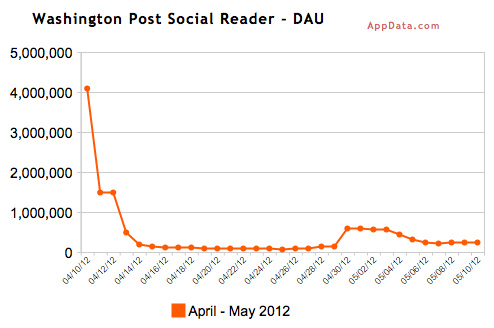In May, Mike Hudack posted a self-described rant on Facebook about the dismal state of the media, focused as it is so often these days on lowest-common-denominator clickbait.
[W]e turn to the Internet for our salvation. We could have gotten it in The Huffington Post but we didn’t. We could have gotten it in BuzzFeed, but it turns out that BuzzFeed’s homepage is like CNN’s but only more so. Listicles of the “28 young couples you know” replace the kidnapped white girl. Same thing, different demographics…
(Vox.com) writes stupid stories about how you should wash your jeans instead of freezing them. To be fair their top headline right now is “How a bill made it through the worst Congress ever.” Which is better than “you can’t clean your jeans by freezing them.”
The jeans story is their most read story today. Followed by “What microsoft doesn’t get about tablets” and “Is ’17 People’ really the best West Wing episode?”
“Someone should fix this shit,” he concluded.
Problem is, Mike Hudack is director of product at Facebook Inc., which as seemingly every journalist on the internet rushed to point out, is as responsible for these problems as anyone. It showed a startling lack of self-awareness of Facebook’s outsized role in the media ecosystem.
Now, three months later, Facebook has taken a step toward curbing clickbait by tweaking its newsfeed algorithm. And while that’s a positive step, it’s unlikely to do much about Hudack’s plaint.
For one, Facebook has a somewhat narrow definition of clickbait:
“Click-baiting” is when a publisher posts a link with a headline that encourages people to click to see more, without telling them much information about what they will see. Posts like these tend to get a lot of clicks, which means that these posts get shown to more people, and get shown higher up in News Feed
Which means HuffPost Spoilers could have less material, an unfortunate side effect:
Taking a bath RT @HuffingtonPost: @Oprah's favorite hobby may surprise you
— HuffPo Spoilers (@HuffPoSpoilers) August 21, 2014
But the change is hardly going to spark a race to the top among content creators. Facebook is mostly a shiny, happy place. Dropping hard news or a serious think piece between baby pictures and vacation updates is more likely to draw crickets than likes. Which is why the ice-bucket challenge was all over your Facebook feed, but Ferguson and ISIS were not.
But it’s more than that. The core economic incentives of the advertising-based internet put the pursuit of pageviews above all else.
That model struggles (at best) to support serious journalism. “Bryan City Council passes first vote on $6.2M incentive for hotel developer” isn’t going to get many clicks, for instance, but “The Best City Council Ad In Existence” might. And the former, which required someone to go out and do time-consuming reporting, is far more expensive than the latter, which did not.
Which is why it pays to be in the platform business, where you let other people make the content for you. Facebook’s revenue per user was a measly $5.79 in the US and Canada last quarter, less than the cost of one newsstand copy of the Sunday New York Times in most of the country.

But Facebook had more than 200 million users, and the cost of its content was effectively zero. Its operating-profit margin was a whopping 48 percent.
For publishers that depend on Facebook to funnel them pageviews, existence is precarious. Facebook can turn off the traffic spigot at any time. The Washington Post crowed about its ethically challenged Social Reader app, but then Facebook tweaked its algorithm, and the traffic evaporated overnight.

The peril of platform dependency is hardly limited to those focused on Facebook, though. In the SEO heyday, there was the rise of Demand Media (remember them?), which gamed Google’s search results with low-quality posts well enough that within a few weeks of going public in 2011, it was worth $1.8 billion. Soon after, Google changed its algorithm, burying posts from content farms down low in search results. Demand shares have crashed 92 percent since then.
So scrupulous news publishers can’t really cheer Facebook’s decision to kneecap some of their more manipulative competitors. Zuckerberg & Co. can and will do the same to them someday, as soon as it serves Facebook’s interests.
Ryan Chittum is a former Wall Street Journal reporter, and deputy editor of The Audit, CJR’s business section. If you see notable business journalism, give him a heads-up at rc2538@columbia.edu. Follow him on Twitter at @ryanchittum.
